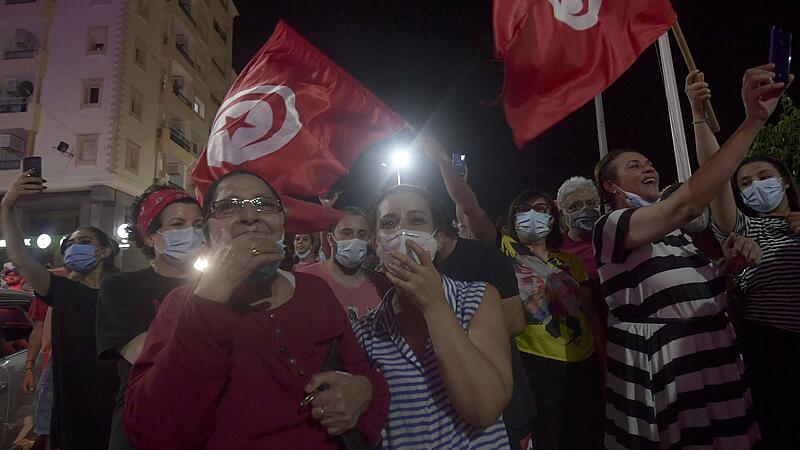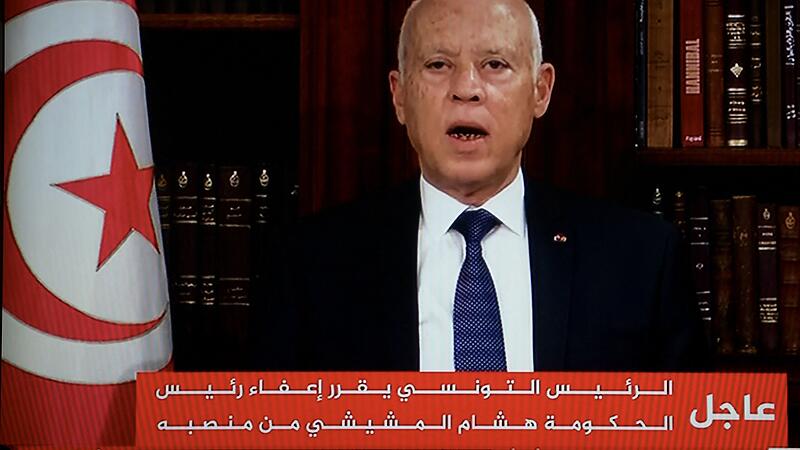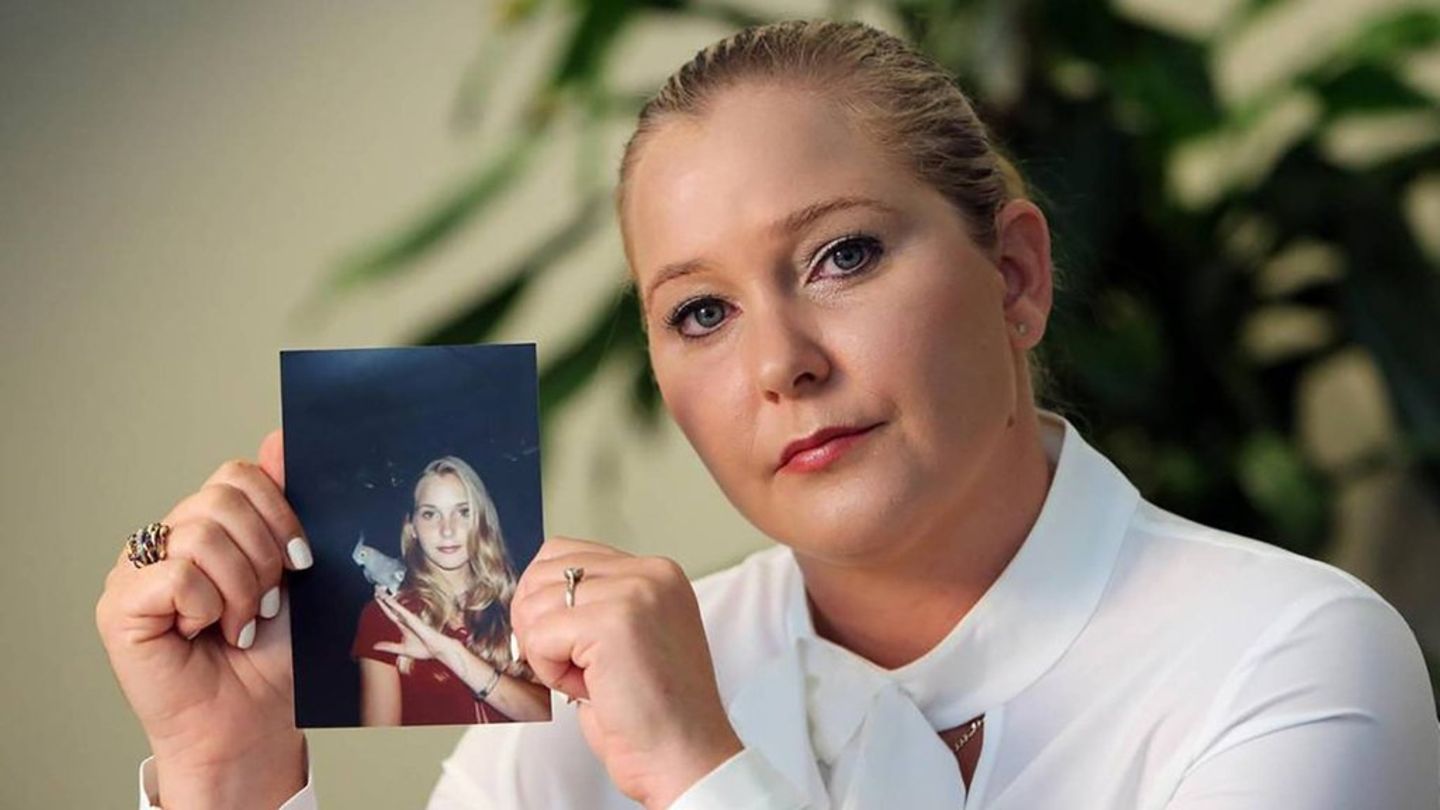Tunisia’s President Kais Saied has declared an evening curfew after the government was disempowered. This applies from now until August 27 from 7:00 p.m. to 6:00 a.m., it said on Monday in a statement by the Presidential Office on Facebook. The only exceptions are for urgent medical emergencies and night workers. In addition, no more than three people should meet in public.
In a video, Saied denied allegations of a coup. On Sunday, he surprisingly ousted Prime Minister Hichem Mechichi and put Parliament out of power. The Justice and Defense Ministers were also dismissed. Saied passed a corresponding decree on Monday, announced the Presidential Office. Defense Minister Ibrahim Bartaji and the incumbent Justice Minister Hasna Ben Slimane have to vacate their posts. Street battles broke out on Monday.

Tunisia
Bild: (APA/AFP/FETHI BELAID)
Power struggle between the president and the Islamist party
In the Maghreb state, Saied has been fighting a power struggle with the Islamic conservative Ennahda party for months. This is the strongest force in parliament, but is unpopular in large parts of the population. Saied argues with the now deposed Mechichi as well as with parliamentary president and Ennahda boss Rached Ghannouchi about how power should be distributed between the president, government and parliament. Saied had previously blocked the appointment of ministers and indicated that he wanted to expand his power.

Tunisia’s President Kais Saied
Bild: (APA/AFP/FETHI BELAID)
The surprising procession of Saieds drove his supporters out into the streets to celebrate the night despite a corona curfew. According to eyewitnesses, they lit beacons and fireworks, honked their horns in cars, waved flags and sang the national anthem. Some videos showed military vehicles driving through clapping groups of Tunisians. Saied, who has been in office since 2019, showed up briefly during the night and assured him that it was not a “coup” and that he did not want to “shed a single drop of blood”. Violence is answered immediately with violence from the security forces.
How the situation develops remains to be seen. On Monday, Saied seemed to want to secure the takeover of government business with the help of the military. Soldiers surrounded the parliament and buildings of the government and state television in the capital Tunis. There the police also rummaged around the office of the TV station Al-Jazeera – without a search warrant, as the station reported. The Qatar-funded news channel is accused of giving Islamists too much space.
Video: ORF correspondent Karim El-Gawhary speaks about the political events in Tunisia and what consequences these have for the country.
This video is disabled
Please activate the categories Performance cookies and Functional cookies in your cookie settings to display this element. My cookie settings
Protesters call for “reverse coup”
The parliament building in Tunis was closed that evening and surrounded by security forces. During the night, these also prevented the President of Parliament Ghannouchi from entering the building. Angry demonstrators and Ennahda supporters moved there on Monday, demanding access and a “reversal of the coup”. Some tried to climb over the gate where an armored military vehicle was parked. According to eyewitnesses, there were also wrangling between demonstrators and Saied’s supporters. In some cases there were reports of attacks on Ennahda party offices.
Tunisia is the only country in the region to have made a transition to democracy after the 2011 uprisings that overthrew long-term ruler Zine El Abidine Ben Ali. Since then there have been more than ten changes of government and there is great distrust of politics. Thousands of people demonstrated against high unemployment and the still widespread corruption. In the past few days there have been protests again for days due to the sharp rise in the number of corona cases and the ongoing economic crisis.
Article 80 of the constitution, which came into force in 2014, grants presidents the right to take extraordinary measures in the event of a “threat to the unity, security and independence of the country”. The interpretation of the vaguely worded article would have to clarify a constitutional court, the establishment of which is still pending due to a dispute over its composition.




